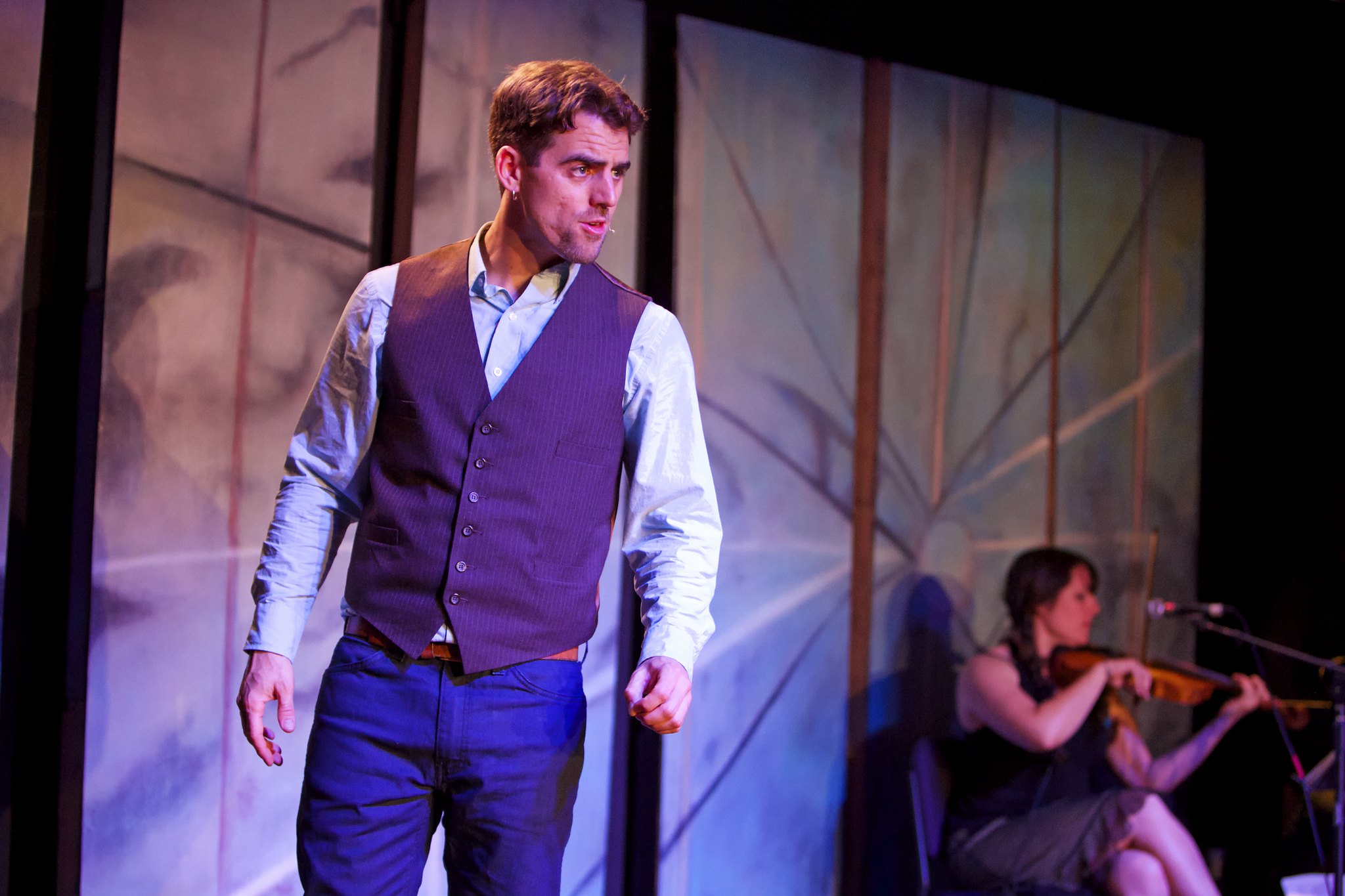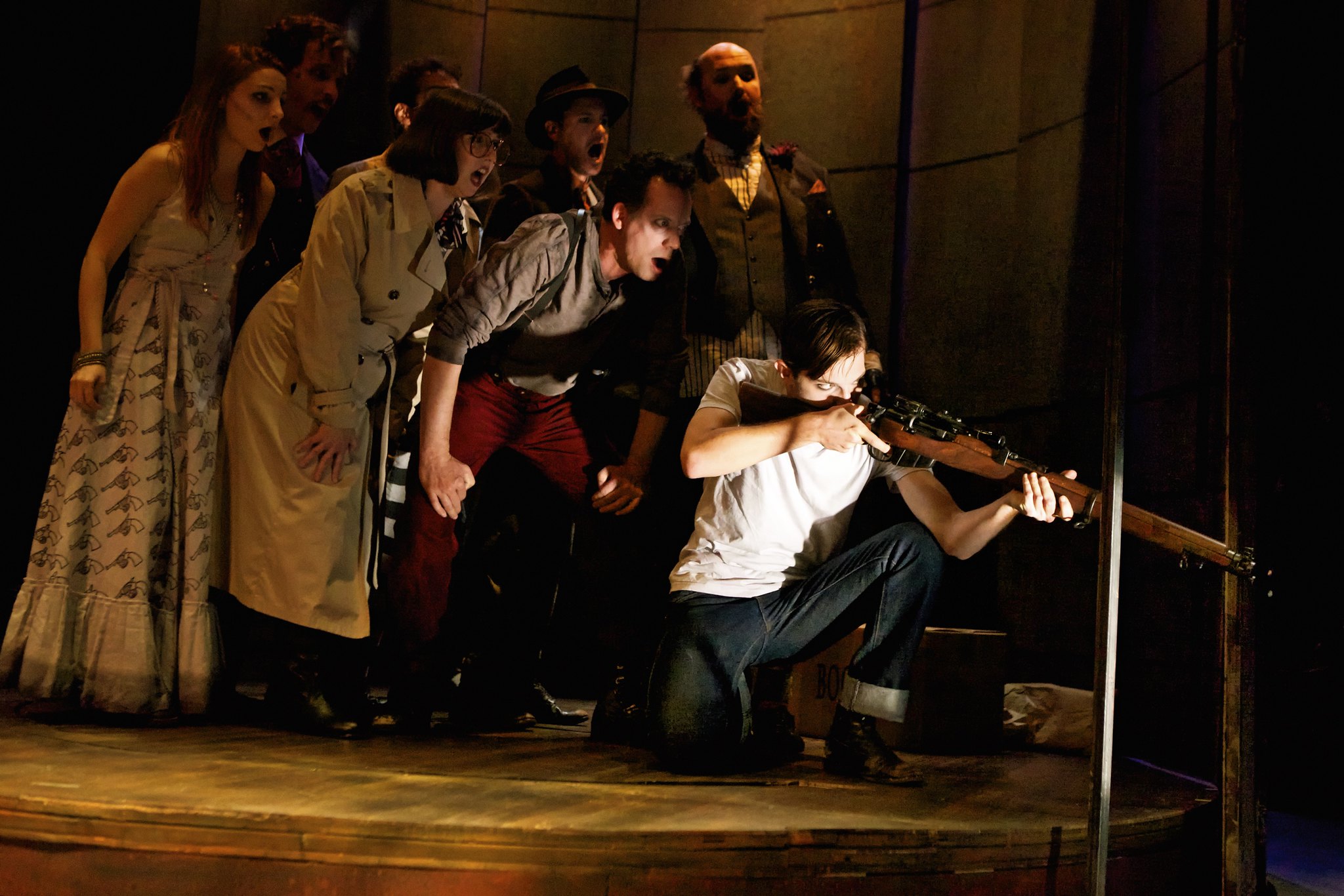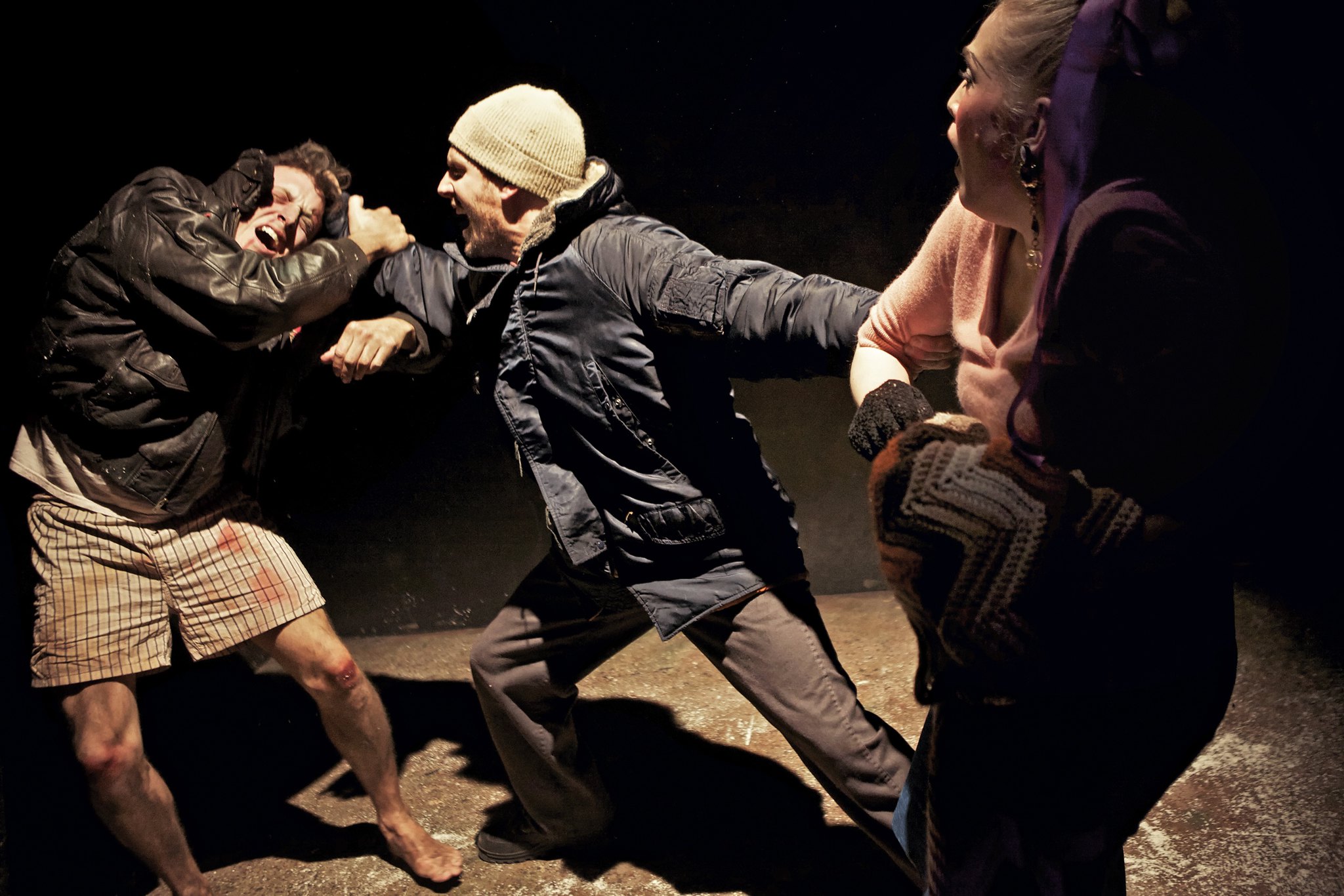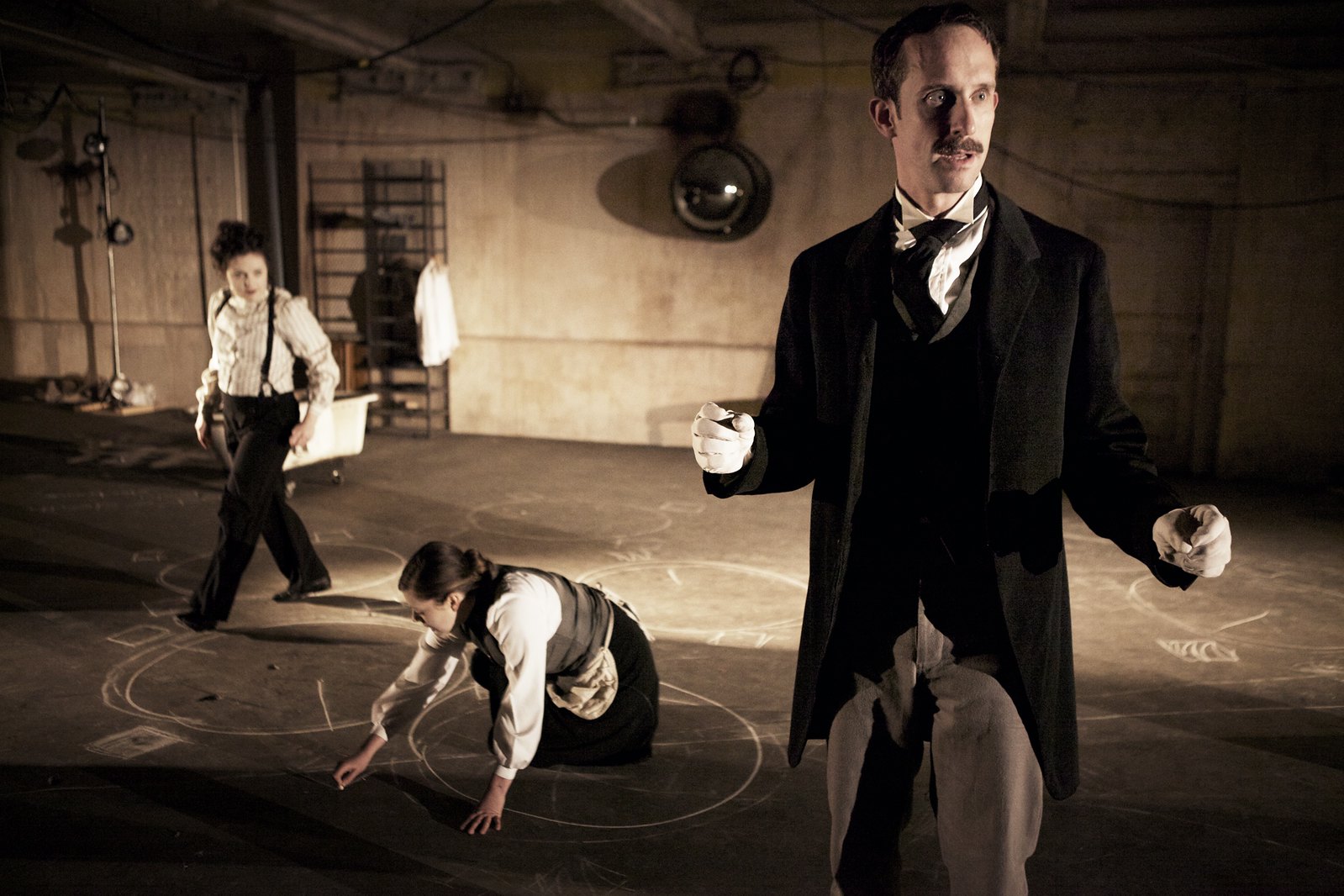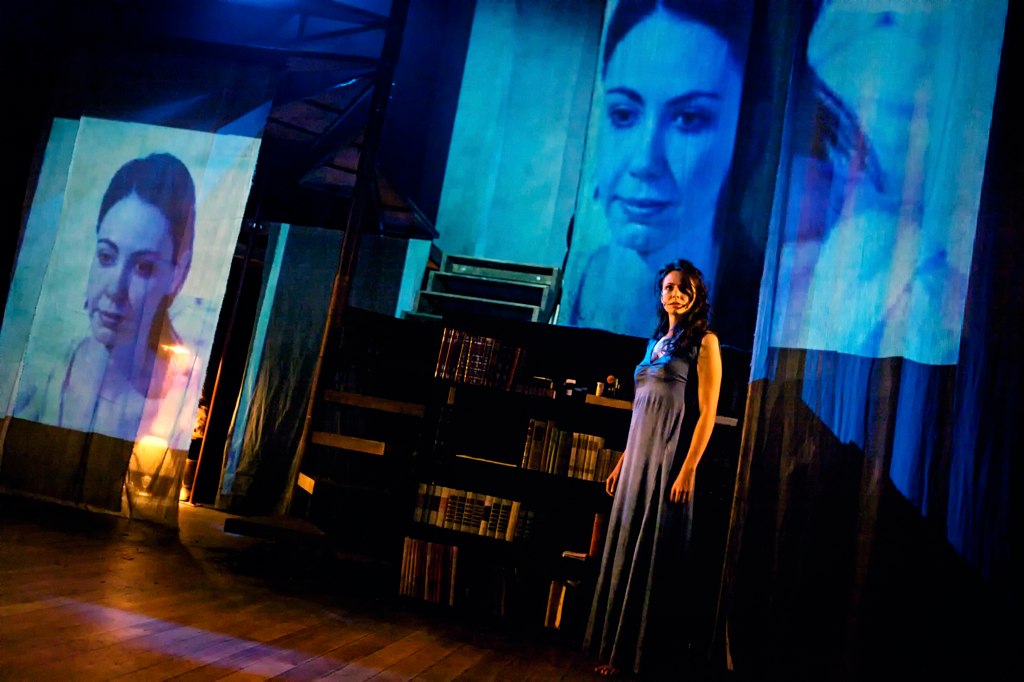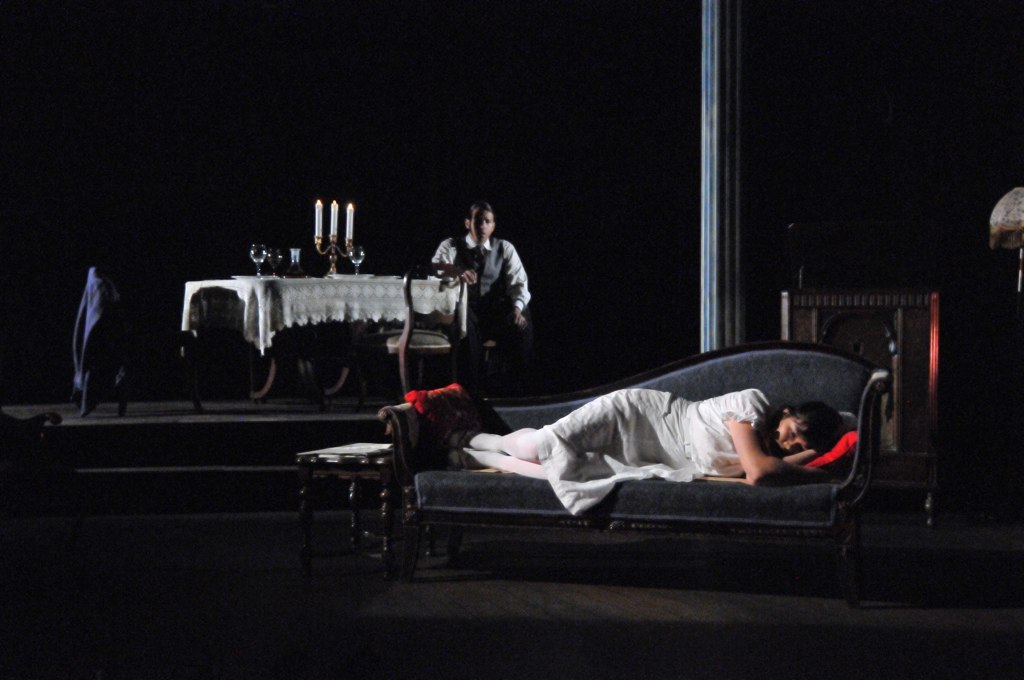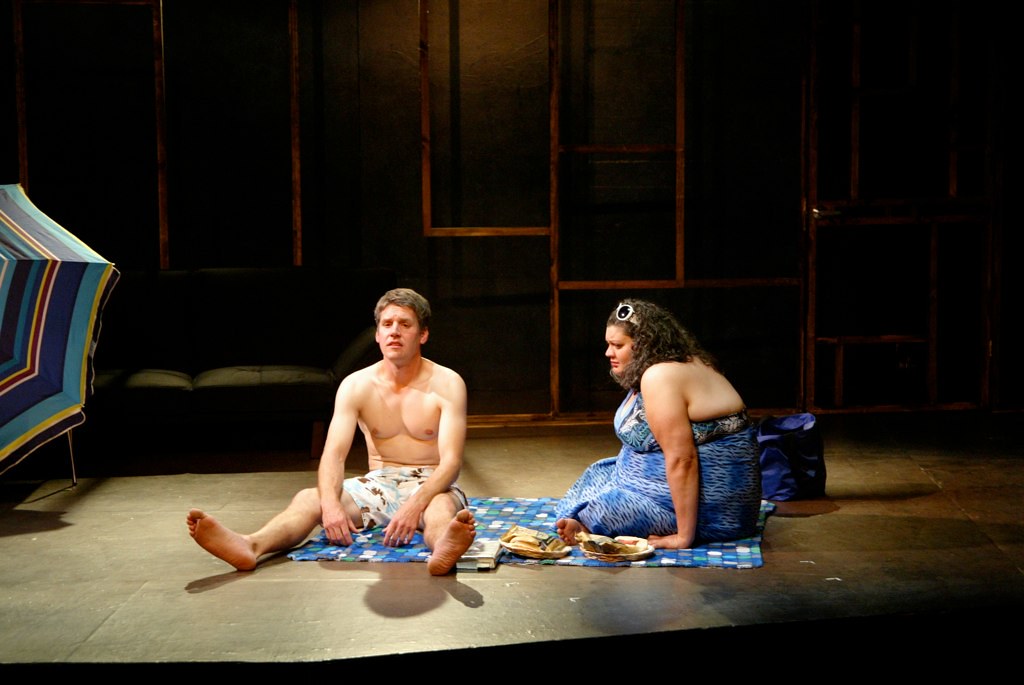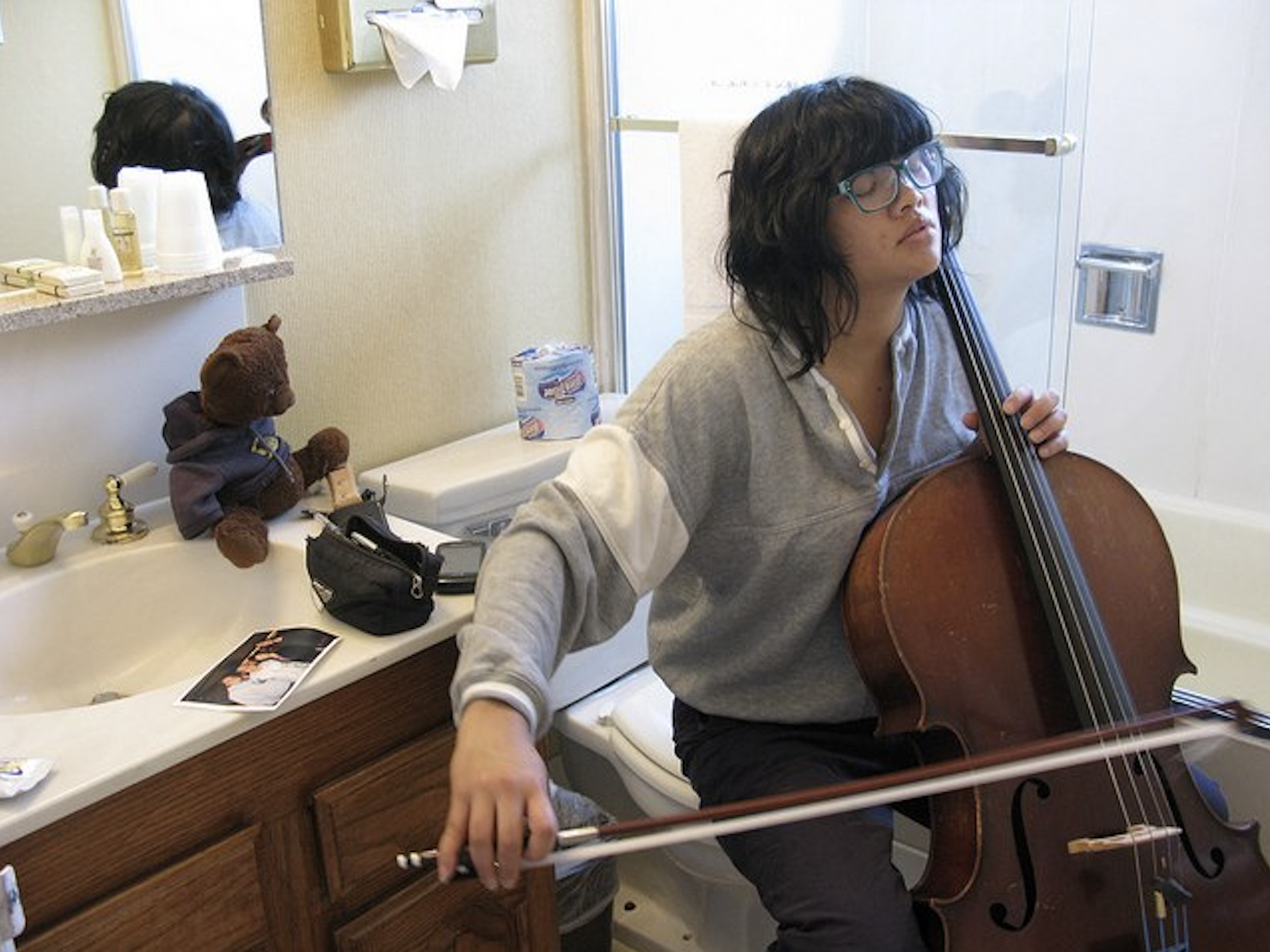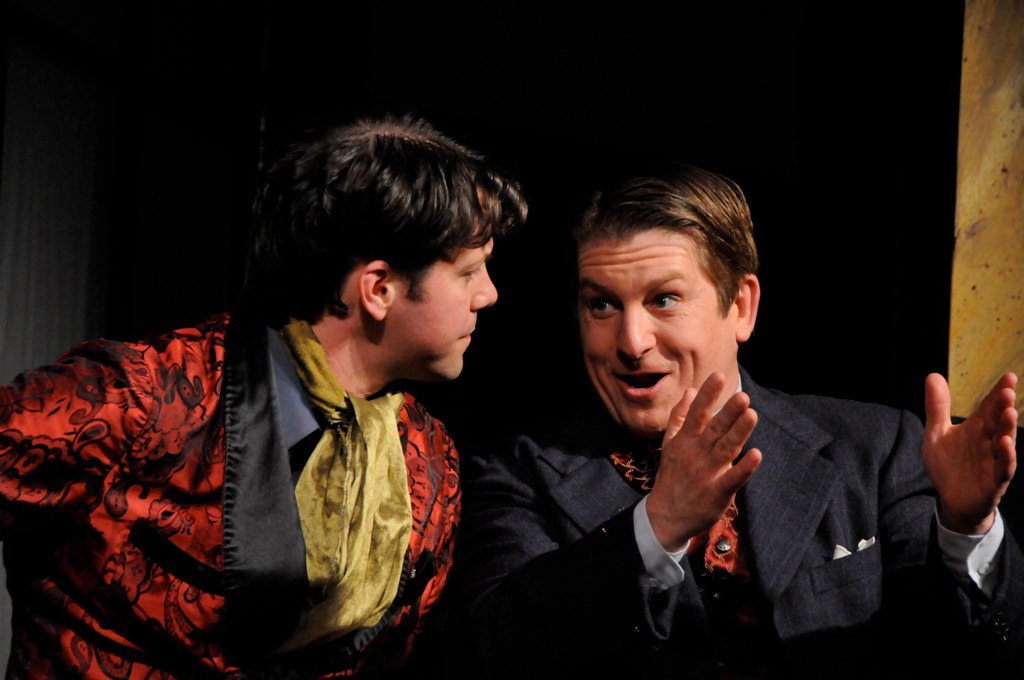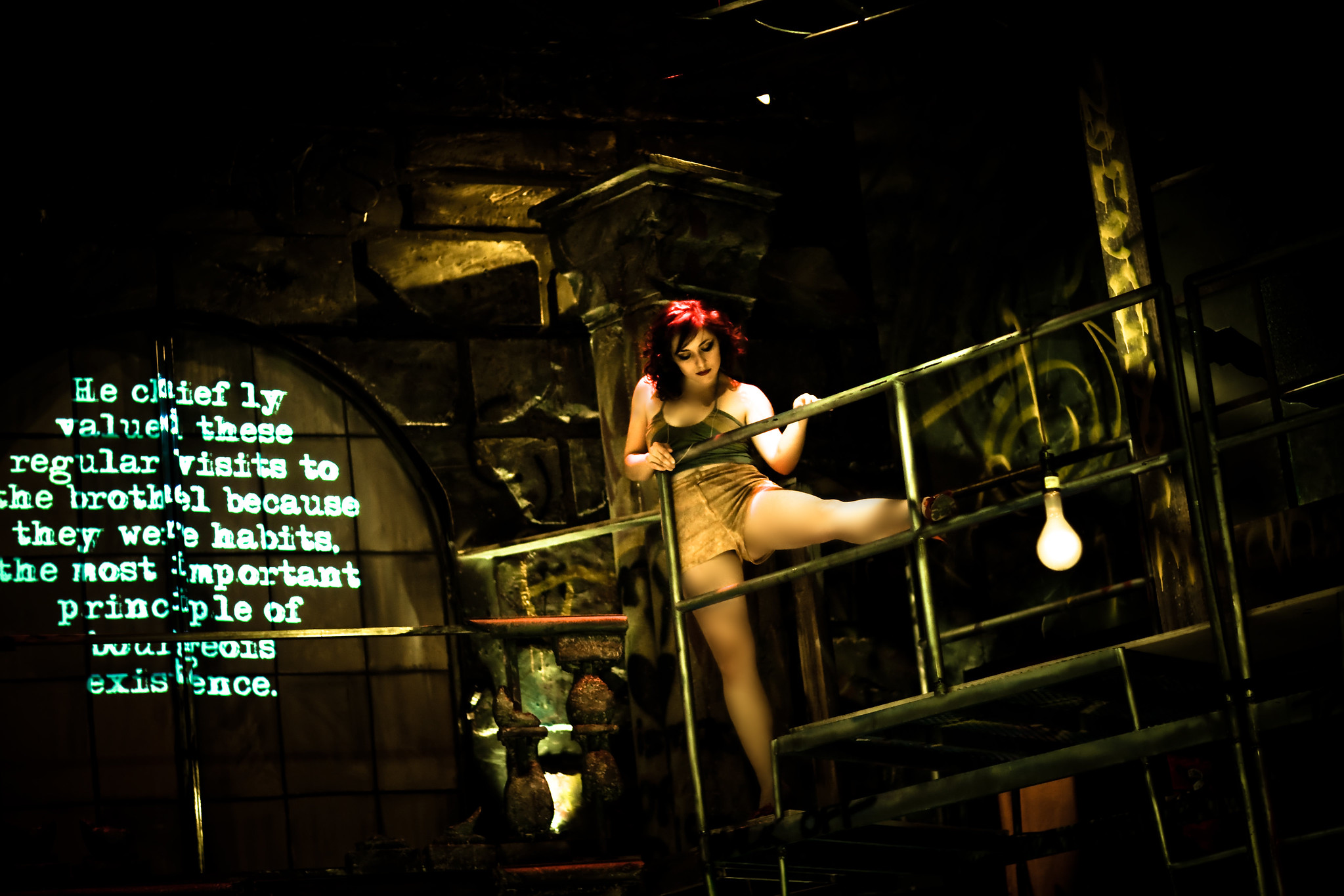Music and lyrics by Stephen Sondheim
Book by John Weidman
Directed by Susannah Martin
Musical Direction by David Möschler
Photos by Pak Han
Presented by Shotgun Players
September 27 – November 11, 2012
Press
SAN FRANCISCO CHRONICLE “taut, close-up staging… captures much of the show’s capacity to shock, amuse, beguile and astonish.” – Robert Hurwitt
THE DAILY CALIFORNIAN “enchantingly alluring… smoothly executed… a twisted vaudeville expression of American history” – Ann Horrocks
BERKELEYSIDE.COM “director Susannah Martin has worked wonders with Assassins.” – Lance Knobel
EAST BAY EXPRESS “a superb rendition… inventive and wonderful… a tantalizing spectacle.” – Erika Milvy
SF WEEKLY “The production resonates with election-year narratives… But the show is also timeless as an achievement in musical theater; its storytelling is just as complex as Sondheim’s notoriously manic melodies.” – Lily Janiak
SF BAY GAURDIAN “a raucous, thoughtful, and intimate American fever dream.” – Robert Avila
Director’s Interview
In deciding to tackle this famous Sondheim musical, what were your initial inspirations for the production?
Dave Möschler was my initial inspiration for this production. He came to me in 2009, right after we had opened The Threepenny Opera, said “I have the next ‘Susannah and Dave’ show”, and presented me with Assassins. He instinctively felt that it would be right up my alley, and he was right. It’s not a traditional musical in terms of its characters or structure; it’s political and historical in its subject matter, it’s simultaneously disturbing and entertaining, and it’s eminently theatrical.
How would you describe the concept of the American promise? In what way do you consider this to be the driving force behind each of these assassins?
Because of the nature of our founding as a country (it was a revolution, after all), the tenets listed in our founding documents, and our long history of manifesting destiny, we are brought up as Americans with certain expectations of what we are owed. You could say that the “American Dream” is a set of expectations built on promises made to us – both literal promises in those founding documents and more amorphous, implied promises. I know we live in a time where many don’t see the American Dream as possible anymore. But we want to believe. We want it to be possible.
With the assassins, those implied promises go beyond the idea of, “If you work hard, you will succeed and thus, be happy.” The assassins live in a place of, “I am owed happiness, I am owed success, and I have the right to criticize, to judge if those things are not given to me. I have the right to take action and claim my happiness.”
This may sound extreme. But I don’t think the assassins are alone in that expectation, that we have a right to judge, to criticize, and to take action. For some of them, their frustration comes from a very acute place of poverty, desperation, and neglect. It comes from a place of being backed into a corner and expressing their helplessness, their powerlessness through one, great “historic” act. It is the only way they see out of the trap they find themselves in.
You chose to put together this production without an ensemble of additional characters, preferring instead to make the assassins “every man & woman” in addition to their roles as the presidential killers. What motivated this choice and how would you describe its importance to your audiences?
When I first read the script – and mind you, I read the published script from the original 1991 production – I was struck by how streamlined it was, how efficiently it told each of the assassins’ stories and hurtled us to its final moments. It was so beautifully focused that, though I saw these other characters in the script (bystanders, witnesses, Emma Goldman, David Herrold), they all seemed incidental to me. Or, if not incidental, they were there with the dramatic purpose of aiding, supporting, moving along each assassin’s story, and moving along our central story of watching this motley crew of lone wolves become a makeshift family. So when I read it, I just assumed that the show was performed without an ensemble. I assumed that the assassins would not only want to tell their own stories, but would also want to support the stories of their fellow assassins.
I also thought a lot about how the Bystanders reflect the everyman. They reflect – along with the balladeer – us. And yet, all of these assassins (except John Wilkes Booth) were not extraordinary or famous figures before they assassinated or attempted to assassinate the president. They were the everyman, just like us. Their complaints, frustrations, and arguments are not uncommon to any of us. Only their one act is. We try and forget about them – we try to dismiss them as crazy, or as an anomaly. But they are just as much a part of the fabric of what makes up this country as anyone else.
Does history repeat itself? What is the cycle of repetition embedded within our culture that continuously drives individuals to take this drastic step? Are we all just stuck in some kind of massive zoetrope, doomed to keep repeating the mistakes of the past?
Yes, I think history repeats itself. Can I say why I think we’re doomed to repeat it? I am not a historian, a sociologist, or a psychologist. So it’s all conjecture from me. I will say that circumstances aren’t changing enough to allow people a way out of frustration, desperation, misery, powerlessness, or hopelessness.
I will also say that I don’t think that time is linear. I think it’s a continuum with cycles. We jump back and forth in time in our own lives – I think the world does that, as well. This musical reflects that non-linear representation. It reflects that, though the reasons around an act may change, the act itself will not – and it will repeat and repeat and repeat.
What is it about assassination that captivates the imagination and why do you think it is particularly relevant right now?
What captures the imagination? I don’t know a single person that hasn’t felt frustrated about politics or government. And yet, do those people then pick up a gun and shoot the president? How do we get from powerlessness to shooting a leader?
Why is it relevant right now? The election. The amount of anger in the country right now. The very, very sad slew of violent, gun-related tragedies that have occurred in the U.S. in just the past few months. The incredible helplessness and powerlessness that people feel right now vis-a-vis the government. The strong desire to DO something about it and yet the strange inability to fully commit and take action in a way that feels definitive or that feels like it changes anything.
Assassins is, by no means, a historical document. It’s a piece of theatre. Thus, what it says about these nine presidential assassins is not always grounded in fact. What, thematically, it says about the country, the principles the country was founded on, and Americans’ expectations of what the nation, or the government, or the President “owes” us, is fascinating.
Cast
Giuseppe Zangara / Aleph Ayin
Sara Jane Moore + Dialect Coach / Rebecca Castelli*
John Hinckley / Danny Cozart
Sam Byck / Ryan Drummond*
Proprietor / Jeff Garrett
Charles Guiteau / Steven Hess
Hinkley Understudy / John Lewis
Squeaky Fromme / Cody Metzger
John Wilkes Booth / Galen Murphy-Hoffman*
Leon Czolgosz / Dan Saki
Balladeer + Oswald / Kevin Singer
*Member of AEA
Musicians
Jeff Patterson / double bass
Andrew Maguire / drums + percussion
Derek Brooker / guitar + banjo + mandolin
Amar Khalsa / reed 1
Carolyn Walter / reed 2
Jeremy Carrillo / trombone
Rafa Postel / trumpet
Crew
Founding Artistic Director / Patrick Dooley
Assistant Director / Lynda Bachman
Assistant Lighting Designer + Research Assistant / Wolfgang Wachalovsky
Assistant Musical Director / Ben Malkevitch
Assistant Stage Manager / Katy Adcox
Choreographer / Erika Chong Shuch
Choreography Assistant / Janet Das
Company Reps / John Mercer + Katja Rivera
Costume Assistant / Ashley Rogers
Costume Designer / Christine Crook
Dramaturg / Dori Jacob
Follow Spot Operator / Jocelyn Edwards
Lighting Designer / Gabe Maxson
Properties Designer / Jackie Scott
Set Designer / Nina Ball
Sound Designer / Theodore J.H. Hulsker
Sound Technician + Install / Anton Hedman
Stage Manager / Hanah Zahner-Isenberg
Technical Director / Anne Kendall
Weapons Assistant + ASM / Lizz Guzman
Weapons Specialist + Fight Director / Dave Maier
